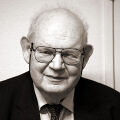Template:Selected anniversaries/October 14: Difference between revisions
Jump to navigation
Jump to search
No edit summary |
No edit summary |
||
| Line 1: | Line 1: | ||
<gallery> | <gallery> | ||
||1563 – Jodocus Hondius, Flemish engraver and cartographer (d. 1611) | |||
||1641 – Joachim Tielke German instrument maker (d. 1719) | |||
||1687 – Robert Simson, Scottish mathematician and academic (d. 1768) | |||
||1801 – Joseph Plateau, Belgian physicist and academic, created the Phenakistoscope (d. 1883) | |||
File:Jean-Louis_Pons.jpg|link=Jean-Louis Pons (nonfiction)|1831: Astronomer [[Jean-Louis Pons (nonfiction)|Jean-Louis Pons]] dies. He was the greatest visual comet discoverer of all time: between 1801 and 1827, Pons discovered thirty-seven comets, more than any other person in history. | File:Jean-Louis_Pons.jpg|link=Jean-Louis Pons (nonfiction)|1831: Astronomer [[Jean-Louis Pons (nonfiction)|Jean-Louis Pons]] dies. He was the greatest visual comet discoverer of all time: between 1801 and 1827, Pons discovered thirty-seven comets, more than any other person in history. | ||
File:George Eastman.jpg|link=George Eastman (nonfiction)|1884: Inventor [[George Eastman (nonfiction)|George Eastman]] receives a U.S. Government patent on his new paper-strip photographic film. | |||
||1888 – Louis Le Prince films first motion picture: Roundhay Garden Scene. | |||
||1900 – W. Edwards Deming, American statistician, author, and academic (d. 1993) | |||
||1914 – Raymond Davis Jr., American chemist and physicist, Nobel Prize laureate (d. 2006) | |||
||1932 – Anatoly Larkin, Russian-American physicist and academic (d. 2005) | |||
||1939 – The German submarine U-47 sinks the British battleship HMS Royal Oak within her harbour at Scapa Flow, Scotland. | |||
||1947 – Captain Chuck Yeager of the United States Air Force flies a Bell X-1 rocket-powered experimental aircraft, the Glamorous Glennis, faster than the speed of sound at Mach 1.06 (700 miles per hour (1,100 km/h; 610 kn) over the high desert of Southern California and becomes the first pilot and the first airplane to do so in level flight. | |||
||1960 – Abram Ioffe, Russian physicist and academic (b. 1880) | |||
||1962 – The Cuban Missile Crisis begins: A U.S. Air Force U-2 reconnaissance plane and its pilot flies over the island of Cuba and takes photographs of Soviet SS-4 Sandal missiles being installed and erected in Cuba. | |||
||1964 – Martin Luther King Jr. received the Nobel Peace Prize for combating racial inequality through nonviolence. | |||
||1968 – Apollo program: The first live TV broadcast by American astronauts in orbit performed by the Apollo 7 crew. | |||
||1984 – Martin Ryle, English astronomer and physicist, Nobel Prize laureate (b. 1918) | |||
||1986 – Takahiko Yamanouchi, Japanese physicist (b. 1902) | |||
||2008 – Robert Furman, American engineer and intelligence officer (b. 1915) | |||
File:Benoit Mandelbrot.jpg|link=Benoit Mandelbrot (nonfiction)|2010: Mathematician [[Benoit Mandelbrot (nonfiction)|Benoit Mandelbrot]] dies. | File:Benoit Mandelbrot.jpg|link=Benoit Mandelbrot (nonfiction)|2010: Mathematician [[Benoit Mandelbrot (nonfiction)|Benoit Mandelbrot]] dies. | ||
||2011 – Ashawna Hailey, American computer scientist and philanthropist (b. 1949) | |||
||2012 – Gart Westerhout, Dutch-American astronomer and academic (b. 1927) | |||
</gallery> | </gallery> | ||
Revision as of 14:34, 8 October 2017
1831: Astronomer Jean-Louis Pons dies. He was the greatest visual comet discoverer of all time: between 1801 and 1827, Pons discovered thirty-seven comets, more than any other person in history.
1884: Inventor George Eastman receives a U.S. Government patent on his new paper-strip photographic film.
2010: Mathematician Benoit Mandelbrot dies.


